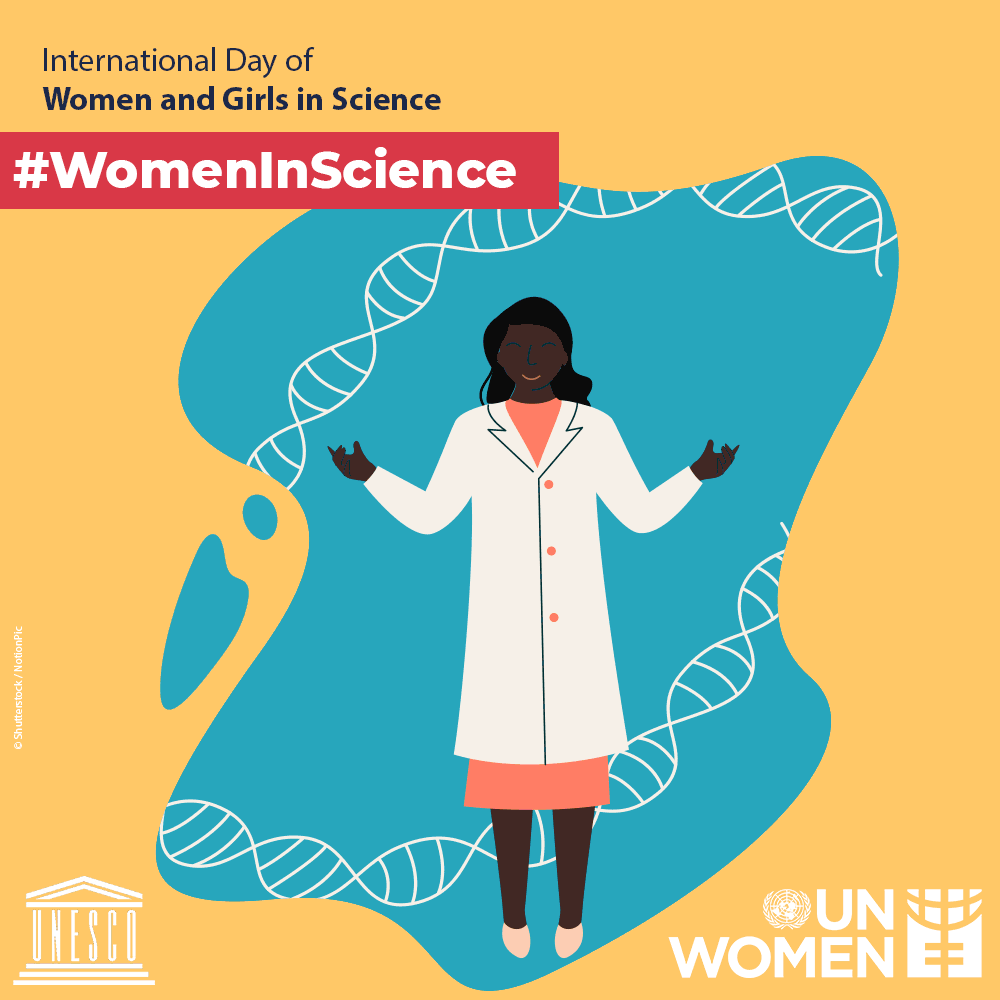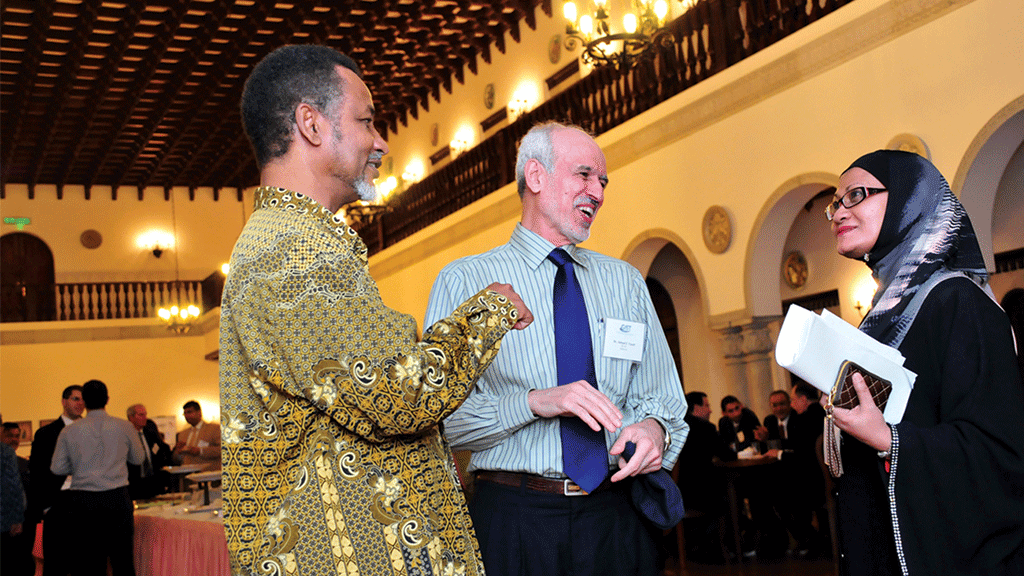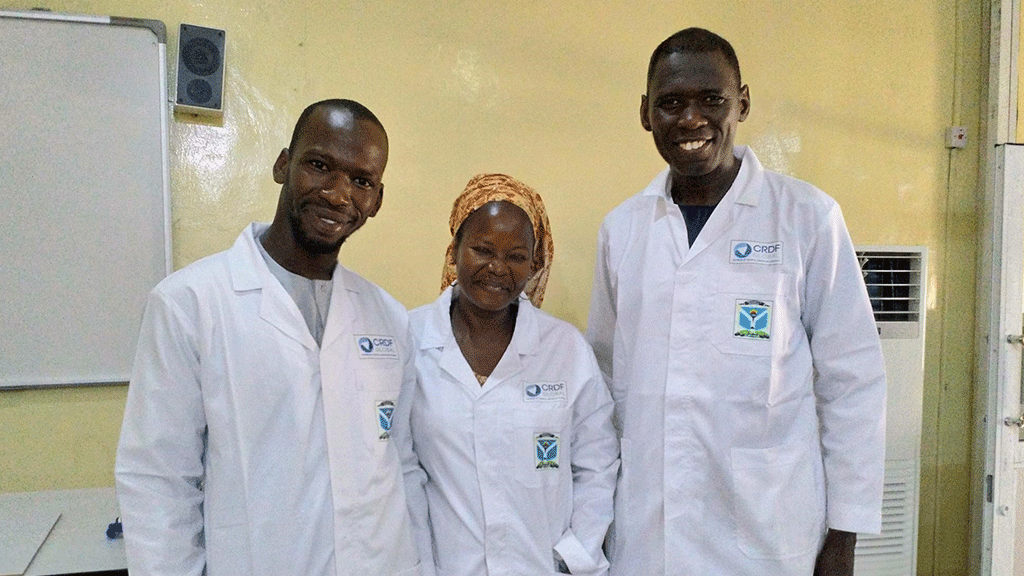Happy International Day of Women and Girls in Science!

CRDF Global is extremely proud of the contributions of women and girls around the world to science. Diversity and gender equality in science is critical to producing the high-quality research needed to solve our world’s major development challenges in areas like public health, food security, and peace and security. However, women’s groundbreaking contributions to these areas have been historically often unrecognized.
To celebrate this day, CRDF Global is recognizing women scientists working towards promoting sustainable agriculture and environmental research around the world. Scientific advancements in these areas are key to achieving many of the United Nations’ Sustainable Development Goals, including ending hunger, clean water and sanitation, and climate action.
Dr. Kerry Clark is the Director of the College of Agriculture, Food & Natural Resources International Programs at the University of Missouri.
“My current career path got its start when I was a Peace Corps volunteer in Mali in the late 1980s. I had begun my undergraduate education as a pre-vet student but eventually my 19-year-old self couldn’t stand to take one more chemistry or physics class and ended up majoring in journalism instead. However, working for nearly three years in rural Africa gave me exposure to the ways that science could be applied to help make both animal and human life less difficult. I saw such huge differences in Malian and American agricultural practices that I wanted to make a contribution to improving crops and soils in places with adverse climatic and environmental conditions. The first time I saw someone trying to grow maize in the Sahara Desert, I was blown away by both their perseverance and the realization that they had to survive in those harsh conditions. When I began to see science as a means for transformational improvements in food security, I was drawn back in and went on to get an MS in plant science and a PhD in soil science. Chemistry became much more interesting when I thought of it as a means to improve agricultural productivity and not just as abstract concepts. The biggest challenge that I’ve encountered as a woman in my field is that there is still a pervasive but often subtle bias against women in management positions. Thankfully, some women do make it to high positions in agricultural research, but I don’t think it is still nearly enough. Young women just entering the field need role models, who are sadly missing in many institutions. I’m glad to see the ranks of women in agricultural research growing along with their contributions to high tech solutions for age old problems.” Julie Edwards is a graduate student at the University of Arizona. Her research focuses on paleoclimatology, dendrohydrology, wood anatomy, and Arctic vulnerability to climate change. She has been involved in international research projects investigating the Ob River in Russia. The Ob River is one of the largest rivers in the world and extreme floods can cause massive infrastructure damage.
“A pivotal point in my studies was traveling to Russia as part of a CRDF Global funded project the summer before I began my master’s degree. This experience provided my first opportunity to work with researchers outside of the United States, and I have since fostered many international collaborations as part of my research. My involvement in this project has inspired my current research on Arctic ecosystem response to climate change. Because my research spans the northern hemisphere, collaborating internationally is crucial; if I limit my network of colleagues, I limit my research results and impact. By branching out, I hope to participate in many more global projects as my career progresses. ”
Dr. Rebecca Muenich is a professor and researcher at Arizona State University and leads Muenich Lab Group, which focuses on surface hydrology and water quality to make agricultural and urban systems more sustainable.
“Most of the pivotal moments in my career come as a failure or an uncertainty in future path. In the failures – experiments, ideas, codes – I have been able to learn and adapt to become a better researcher. In the uncertainties, I have found that often taking on new challenges or paths can lead me to new discoveries and ideas that I never would have imagined on my own. So I’ve learned to embrace failure and uncertainty in my career as essential to my growth. My motivation for research is derived from two places: my students and my curiosity. My students are filled with such enthusiasm and passion that it’s hard to get bogged down in my worries when they’re around. It brings me the greatest joy to watch them grow and succeed in their own right. As for my curiosity, that’s what helps me forge new paths in research – continually asking questions and reminding myself that that is where research begins. As a woman in engineering, my biggest challenge has been fighting the notion that I don’t belong. From being told I was in the wrong class to being told I have only succeeded because of gender quotas, I struggled and still struggle with imposter syndrome. Believing in myself and my work has not always been natural, so overcoming these issues has been a significant challenge and one that I hope I can help others to overcome as well; either by mentoring support or through changing the systems that create this problem.”



